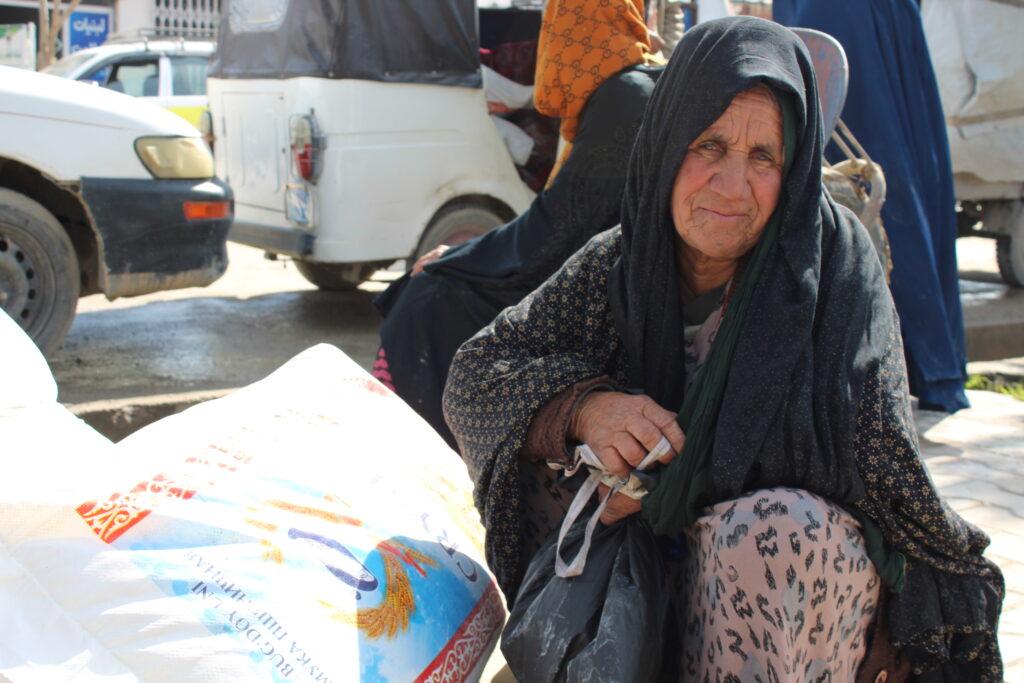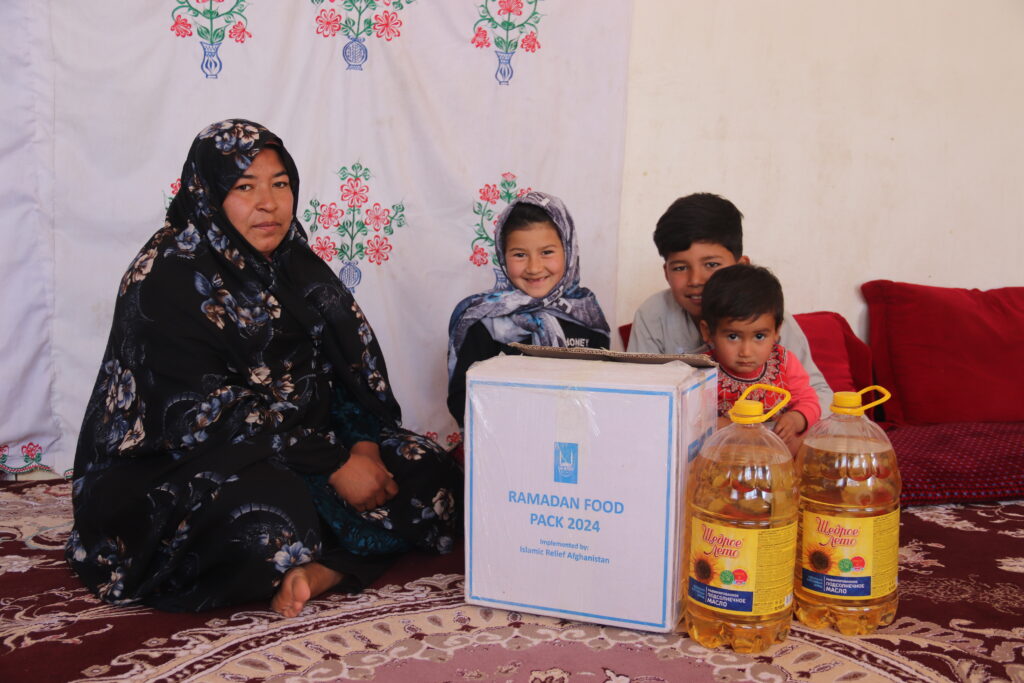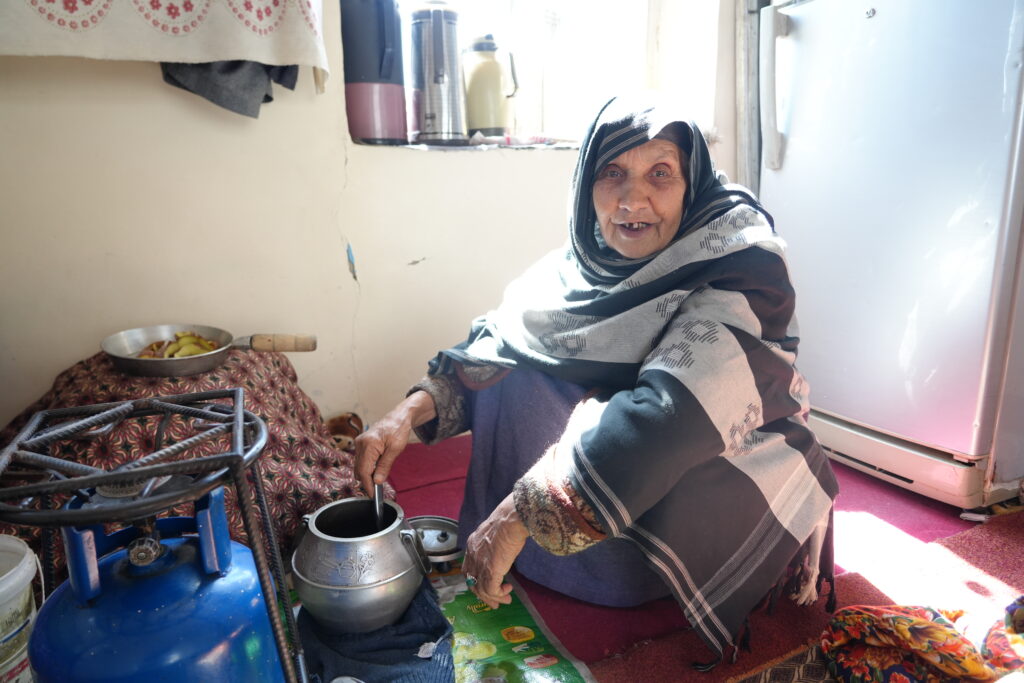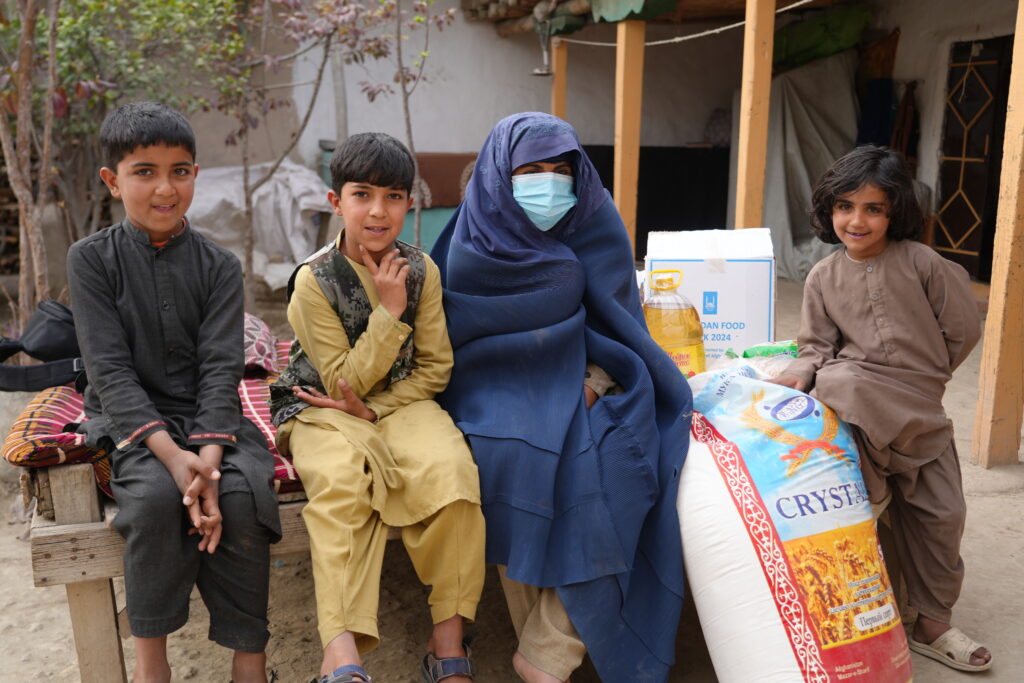In Afghanistan, Islamic Relief is welcoming Ramadan 2024 under the theme ‘Dobara Shuma Hastead’ – or ‘It’s You Again’ – to represent how we are always there for communities in need during Ramadan.
This Ramadan is a challenging one for families in Afghanistan, where the cost of essential food items continues to rise amid inflation and supply chain disruptions. The situation has left low-income families, already struggling after decades of conflict and climate-induced crises, living hand to mouth.
An estimated 23.7 million people – more than half of Afghanistan’s population – are projected to require urgent humanitarian assistance this year. On top of all this, a series of deadly earthquakes in October killed 2,000 people, according to local authorities in Herat province, and added to the suffering of many more.
Also struggling are the half a million people who have returned from Pakistan since mid-September. Many are arriving in areas already hosting large displaced populations, meaning the demands on limited resources are becoming even greater. Many families are living in makeshift tents or overcrowded temporary shelters, exposed to the elements. The bitter cold has seen a rise in respiratory infections, frostbite, and other life-threatening conditions.
Easing the burden
Since 1992, Islamic Relief has distributed food packages to impoverished communities in Afghanistan each year to ease their burden and hardship during the blessed month of Ramadan.
So far this year we have distributed more than 11,000 food packs across 6 provinces – Balkh, Herat, Kabul, Kandahar, Kunar and Nangarhar. Each contains enough flour, oil, pulses and salt to last a family for the whole month, and the packs were distributed the week before Ramadan to ensure families could enter the holy month with joy and dignity.
Among these are the families of Bibi Mehrab, Fatima, Torpaykai, Bakht, who share their stories here.
‘This support will alleviate the constant worry of hunger that plagued my family’

“This assistance is truly invaluable,” says Bibi Mehrab, a widow with 5 grandchildren, who lives in the Maaz Ibn Jabal camp for internally displaced persons (IDPs) in Balkh province and works spinning sheep’s wool into yarn.
She’s originally from Ser-e-Pul province, but in 2021, conflict forced her to relocate to Balkh in search of safety and aid.
“I received the food pack containing all I needed to get through Ramadan. The pack is enough to sustain my family for at least 2 months. It will alleviate the constant worry of hunger that plagued my family.”
“I’m thankful to Islamic Relief as my children will no longer have to endure the pain of going to bed with empty stomachs.”
‘You put a big smile on my children’s faces’

“Ramadan was a few days away, and my home had no food. It made me sad. I have small children, and I was worried about what to say to them if we ran out of food,” recalls Fatima, a 35-year-old mother of 3 children living in Herat, who sews to make ends meet.
“All of a sudden, Islamic Relief teams came to our neighbourhood. They assessed my situation and registered me for Ramadan food packs. I received the food pack, [which was] enough to take us through the month. You put a big smile on my children’s faces. May Allah bless you and the people who support you.”
‘I was worried how we’d be able to fast without food in our home’

“I was worried about how we’d be able to fast without food in our home. We only had one thing in our home: faith and determination to fast,” says Torpaykai.
The 60-year-old shares a 1-bedroom home with her daughter, 2 grandchildren and her husband who is blind and experiencing mental illness. Without a breadwinner, the family is totally reliant on donations from neighbours, charitable institutions and well-wishers to support themselves.
“When I received the food packs, I was overwhelmed. May Allah (SWT) bless the hands of those who supported us at this difficult moment of our lives,” Torpaykai says.
‘My children will make dua for you all’

After her husband died in Afghanistan’s protracted war, the 34-year-old Bakht, was left as the sole provider for their young family. What would be a difficult situation for anyone, was made more challenging because of a lack of economic opportunities for women.
“I never go outside to look for menial jobs. My culture demands that I stay at home as a woman. We live on donations and help from community members,” Bakht explains.
“I received food packs from Islamic Relief containing flour, pulses, cooking oil, and salt. I’m sharing the food packs with my neighbours. They have supported me before, so it’s my turn to share the food today. I have no words to express my happiness. My children will make dua for you all.”
Islamic Relief is on the ground in Afghanistan delivering food packs to help ease families’ burdens during Ramadan, but this is just a drop in the ocean as the needs are immense. Our seasonal programmes provide a lifeline to vulnerable families like these mothers, helping keep people well-fed at this important time of the year.
Please help us reach even more vulnerable people during Ramadan. Donate now.










